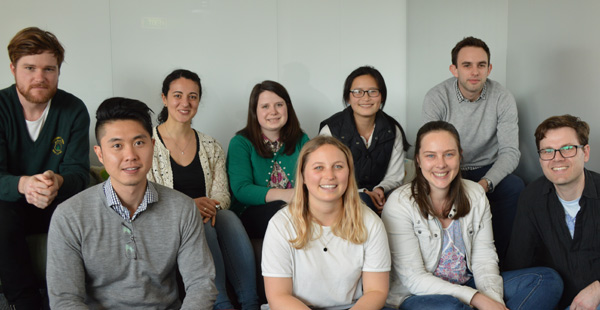Good advice for green start-ups
What are the legal issues for investors funding solar roof-tops? How will laws developed in the context of traditional energy generators work for small scale energy cooperatives? These are just some of the cutting edge legal questions being asked of students in Melbourne's Sustainability Business Clinic.

The Sustainability Business Clinic is the first of its kind for Melbourne Law School: a small student populated law firm that is helping businesses or non-profit entities lead the transition to a sustainable future. The Law School has teamed up with global law firm Ashurst to connect law students to projects that improve environmental wellbeing and assist new enterprises that would not otherwise have access to specialised legal advice.
But having eager law students, with a thirst for applying their knowledge, spot legal issues in your start-up is not always what you expect.
Subject Coordinator, Brad Jessup, says clients have been surprised, and sometimes disconcerted, by the legal issues identified by students. However, all have found it immensely useful to revisit their business plans in the light of specialist legal advice.
"Our clients have seen the value of thinking like a lawyer. For many of them, their projects have brought them into contact with lawyers for the first time."
A mapping project to help neighbours share herbs, a solar energy initiative, roof-top gardeners and a farm for ethically raised pork are just some of the start-ups taking advantage of the free legal advice. All are in the formative stages of their businesses and all are taking initiatives prior to the development of policies and, sometimes, laws to guide their activities.
Student Yaokang Wong joined the clinic to explore his interest in sustainability start-ups and to gain experience in the commercial and front-end aspects of law.
"What has been interesting is talking to the clients and listening to them share with us their business models and any legal issues they are facing, and then helping them with our legal skills," says Yaokang.
Students are providing clients with advice on a range of legal issues, such as advising on permits or consents, negotiating complex regulatory environments or preparing standard documents.
This insight into the realities of legal practice is something that law students do not normally encounter in a classroom. The clinic is part of Melbourne Law School's Public Interest Law Initiative, which has introduced a range of clinical legal education subjects with a focus on improving access to justice.
Further understanding of the professional work environment is brought by a unique collaboration with environmental lawyers from Ashurst who attend the clinic each week. Yaokang says that the guidance provided by these experienced professionals throws new light on how to apply the legal knowledge acquired in the classroom.
"Talking to the Ashurst lawyers helps us to realise that to work quickly you have to manage your time… Having a real physical client you try to empathise with them and think about how they would want this advice to be drafted."
Brad says that through their interactions with real clients and the Ashurst lawyers, students are gaining their first exposure to the concept that in legal practice areas of law interact with each other and many clients require advice across a range of legal areas.
"Through this subject I want students to learn that there's a breadth of law that can be used to advance our environmental wellbeing, to develop sustainably, and for students to understand that we can also achieve environmental protection through enterprise or business," says Brad.
By Lianne Hall
Above: The Sustainability Business Clinic Class of 2014 with Subject Coordinator, Brad Jessup (far right).
Photography: Jasmine Budisa